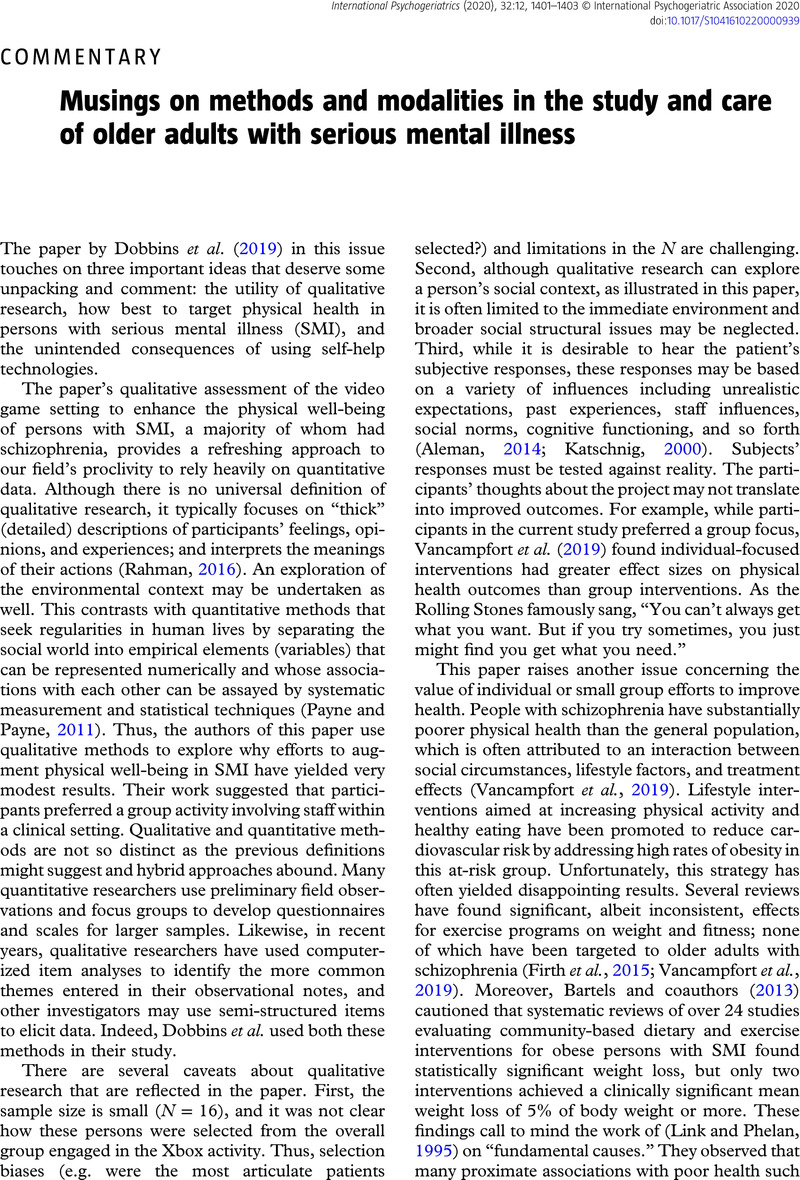Crossref Citations
This article has been cited by the following publications. This list is generated based on data provided by Crossref.
Pachana, Nancy A.
and
Pachana, Nancy
2020.
Implementation science in psychogeriatrics.
International Psychogeriatrics,
Vol. 32,
Issue. 12,
p.
1383.



